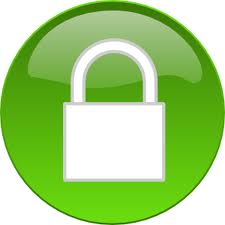FreelanceWriter
Detroit, MI
Female, 30
After working in strategic communications and marketing for five years after college, I decided to make the move to full-time freelancing--mostly, to give me the freedom to travel. I've been freelancing for three years. At any given time, I'm writing for 5-10 print and digital publications, covering everything from engineering to travel. Common projects include copy writing, research reporting and academic writing.
Good question! For anyone that's interested in a writing career, here's what I suggest: 1. Identify your current areas of expertise. There is a market for pretty much every topic, especially on the Internet, so anything can qualify. Someone who's been a stay-at-home mom will have a wealth of knowledge about parenting, feeding children, cleaning and probably health issues. A female professional in a mostly-male industry might be able to talk about issues of equality, overcoming workplace obstacles and professional communication. 2. Find publications that specialize in those topics or have a section devoted to them. Start with online publications, which tend to be less particular about professional writing experience. Look for the writer's guidelines or submission guidelines to find out exactly how the publication accepts articles or queries. Don't ignore those directions! If possible, find a website that allows submissions rather than queries. That type of system gives unpublished writers the chance to prove themselves right off the bat without providing clips. (The only one I can think of off the top of my head is Matadornetwork.com, which is a travel/lifestyle kind of site.) Choose one that pays, if possible. Even $25 for a short article is better than nothing. (I wrote about writing for free in the answer to another question.) 3. Pick your favorite publication and develop a list of story ideas that might work for their target readership. Run each story title through the site's search function to make sure you're not duplicating anything. Notice the style and tone of each piece to get an idea of what the editors are looking for. More importantly, note what the site is missing and figure out how you can fill it. 4. Start writing! It's too easy to get bogged down in questions about qualifications and published clips, and those worries can impede progress. Write an article, send it to a few literate friends and make changes based on their feedback. Proofread the final result and submit it--and then let it go. Rejection is a VERY common part of writing--at least until you land some regular clients--and it's best not to get too attached to each piece. Then, move on to another piece. 5. If you're interested in writing for print, you have a few options. Once you've published three strong stories online, use them as writing samples when querying print publications. National publications might not go for online articles, but it can't hurt to try. You can also try smaller publications--local magazines, newspapers, regional magazines, etc. If you're hitting a wall, try writing small front-of-book pieces to build a trusting relationship with the editors before moving into bigger pieces. Most importantly, try not to let frustration take over. Freelance writing can be tough, especially in the beginning. It gets better. Plus, the freedom is worth all of the frustration.
Yes--freelancing is my sole source of income. Usually, I put in 4-5 solid hours of work each day. (Though depending on how distracted I am by Facebook/Google Reader/news/email/Pinterest, I might be at the computer for 8 hours.) By working 4-5 hours per day, 5 days per week, I'm able to live comfortably. Plus, since I can work anywhere with Internet access, I often travel internationally for 2-4 months at a time. The number of pieces I write depends entirely on the project. Feature articles might stretch out over a period of weeks while I research, schedule interviews, draft and edit. With smaller marketing pieces, I might get out 10 or more in a day. On most days, I work on multiple projects.
My first freelance clients came to me when I was working a full-time job, so I was able to learn the ropes without risking my income. One editor came across my personal travel blog and contacted me about writing a destination-specific article. My first corporate client came to me through a referral. After I quit my job, I didn't take on a full client load right away. The last year of my job was unbelievably stressful, so I took some time off to travel and shake the stress. By the time I connected back into the professional world, word had gotten out that I was no longer with my former agency. One of my old clients reached out to ask if I would take over his company's marketing writing. I turned him down out of respect for my former employer. He was really understanding--in fact, I'm pretty sure he passed my name on to other businesses, because I started getting project offers. A month later, another past client--who had moved on to a high-level position in a different corporation--called and asked if I was interested in writing for his new company. Years later, they are still one of my biggest accounts. It's hard to be specific without knowing your situation, but I'd suggest that you start by looking for writing opportunities in your current industry. If possible, tell your boss you'd like to take on some writing responsibilities, either internally or for clients. Frame it as cross-training. It's a fantastic way to learn. If you build a reputation as a skilled writer in your professional network, people may start sending referrals your way. If you're not comfortable going that route, look for writing opportunities outside of your personal network but inside your industry. Trade publications and topical magazines are a good place to start. For story ideas, use what you have--insider knowledge, unique access to sources, or information about upcoming challenges/trends/catastrophes/developments. If your company's R&D department is pioneering a new manufacturing technique, for example, you'll have an interesting topic and firsthand access to the researchers. As an industry insider, you will automatically be a step ahead of other writers. You'll have an in-depth, working knowledge of the target audience, the jargon, the major players, the ins and outs of business operations, and the challenges facing businesses. In my opinion, corporate clients are the way to go. They always have writing work and they understand the value of industry experience. (I can't tell you how many engineers have audibly sighed with relief when they realized that I was able to speak their language.) Plus, the pay is often higher than print/digital journalism and you don't have to jump through the querying hoops. If a business likes you and your work, they'll keep coming back. The project range is endless: annual reports, project proposals, feature articles, corporate magazines, print marketing copy, website copy, white papers, newsletter articles, client work, employee profiles, research reports... As for the grad students...yes, I imagine they are out there, though I haven't run into them. :) The thing is, there is absolutely no substitute for practical industry experience. A strong writer with five years of industry experience will almost always win out over a recent grad with five degrees and no experience.
Start with some of your favorite websites about travel and food--check to see if they accept submissions from freelance writers. Websites often have lower barriers to entry than print publications, so experience is less important. I can't suggest any specific sites for food, but to get you started, there are some links below to the submission guidelines for websites that pay for travel content from freelancers. It's not much, but it's something. Lost Girls--Writing for NY Times http://www.lostgirlsworld.com/2011/03/pitching-101-how-to-write-for-the-new-york-times-intransit-blog/ Bootsn'All http://writers.bootsnall.com/ Wolrd Hum http://www.worldhum.com/info/submissions/ Matador Network http://matadornetwork.com/content/contributors/ Transitions Abroad http://www.transitionsabroad.com/information/writers/writers.shtml Journeywoman http://www.journeywoman.com/writers_guidelines.html
Beauty Queen
 Is there truth to the stereotypes of “pageant parents?”
Is there truth to the stereotypes of “pageant parents?”
Social Network Security Manager
 How has Facebook remained mostly immune to hacks?
How has Facebook remained mostly immune to hacks?
Police Officer
 Have you ever been shot or seriously injured on the job?
Have you ever been shot or seriously injured on the job?
I once read a Danielle Steele novel--it was the only English-language book in a tiny town in Mexico and I was desperate--and I had the same question. Appalling! Honestly, I don't know. My guess is that editors are overworked and underpaid. Maybe the audiences for certain books care more about the story than the writing? Actually, I just did a quick search and came across this quote, which seems to support that theory: "Writers make up a specialized but very small part of the reading public. As specialists of the craft, we’re naturally hyper-aware of technical gaffes and structural problems. The average reader isn’t going to be anywhere near as likely to notice or care about all the little things that drive us (rightfully, if perhaps over-zealously) mad. They just care that they’re given a good story." (From http://www.helpingwritersbecomeauthors.com/2012/07/why-do-bad-books-get-published.html)
I once worked on a big writing project for a huge company. From the first meeting, it was obvious that the corporate project liaison did not support the company's choice to hire an outside contractor (a common problem when working with businesses that have in-house marketing/communication departments). To make matters worse, this woman had self-published a romance novel, so she fancied herself a writing expert. That may have been true in the bodice-ripping genre, but when it came to high-level science writing for an expert audience...not so much. This woman went out of her way to make my life miserable. She sent passive-aggressive group emails (the ultimate weapon for a petty professional), nitpicked about every tiny thing and demanded I use a different style. Every time I wrote "he said" at the end of a quote, she replaced it with things like "he elaborated," "he uttered, "he pronounced" and "he articulated." It took me weeks to convince her that those phrases have no place in super-technical writing. Luckily, I understood the target audience--who were emphatically NOT romance novel readers--so my choices prevailed. The worst moment came when I requested that the company change their corporate motto. That's a big deal--not to mention a big investment--but it contained a blatant grammatical error and reflected poorly upon the business. This woman just about had a fit. We went back and forth for ages until she finally called a meeting with the CEO, confident that she would come out on top. I'm not naturally combative, but her smug expression at the start of that meeting nearly sent me over the edge. After I calmly explained the issue to the CEO, he paused for a moment and said, "Well, you're the expert. If it's incorrect, we'll change it." The look on the liaison's face at that moment was worth all of the irritation and wasted time. :) It can be difficult to stay professional in that type of situation.
Why not do both? Diving in will give you practical experience, so you'll have more specific questions to ask in class. If you do take a class, choose one that meets or exceeds your level of experience so you don't waste your money. It's much better to be the least experienced writer in the class--you'll learn more and get more feedback.
-OR-
 Login with Facebook
Login with Facebook (max 20 characters - letters, numbers, and underscores only. Note that your username is private, and you have the option to choose an alias when asking questions or hosting a Q&A.)
(A valid e-mail address is required. Your e-mail will not be shared with anyone.)
(min 5 characters)
By checking this box, you acknowledge that you have read and agree to Jobstr.com’s Terms and Privacy Policy.
-OR-
 Register with Facebook
Register with Facebook(Don't worry: you'll be able to choose an alias when asking questions or hosting a Q&A.)